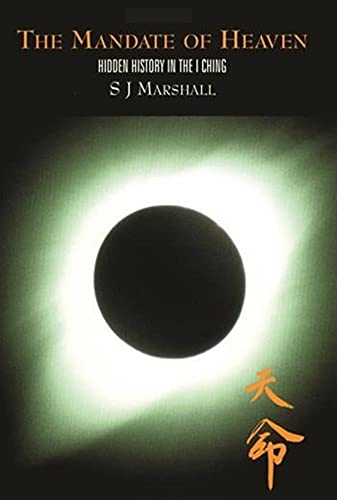
Tradition says King Wen and his family wrote the Zhouyi. Those rediscovering the roots of the Yi have tended to leave this tradition out of the equation altogether, as if their work superseded it. Meanwhile traditionalists have ‘kept the faith’ and not taken too much notice of historical discoveries about the text. S.J. Marshall’s book bridges the divide. It is a compilation of original research and thought, discovering historical references ‘hidden in plain view’ within the text itself.
In fact, Wen and his son, King Wu, are historical characters as well as legendary ones: Wu did overthrow the Shang dynasty in about 1000BC, at the time when the Zhouyi was being composed. Marshall’s essays interweave the story of this conquest with the almost equally exciting story of how he discovered references to it in the Zhouyi. (Practically my only criticism of this book is in that ‘almost’. I didn’t feel I needed to know the precise wording of the message he left on an internet bulletin board when researching eclipses.)
Most of the essays are based on the lines and judgements of specific hexagrams. Most of the book is taken up with a discussion of Hexagram 55, Abundance: the name of the hexagram, Feng, is the name of a garrison city, and Marshall maintains that it is the record of an actual eclipse that was visible there on June 20th 1070BC. This, he feels, was the omen that transferred the mandate of heaven from the Shang to the Zhou, and he offers new ideas and translations for every line of the hexagram. (While in fact the omen this hexagram describes seem to be sunspots, not an eclipse at all – see Pankenier’s unflattering review of the book – this doesn’t alter the fact that the hexagram shares its name with the city and its themes reflect what happened there.)
These are remarkable discoveries in themselves, but there is much more to the book, including thoughts on Hexagrams 18 (divining the source of an illness), 1 (calling the rain dragon) – and 43, 44, 53, 7, 4… The highlight for me, though, was his account of the original meaning of the title itself, Yi, as the sun breaking out from behind clouds.
Marshall’s imagination and enthusiasm, as much as his scrupulous researches, challenge conventional thought on the I Ching from both sides of the history/tradition divide. It is a vivid, direct stimulus for anyone interested in working with the I Ching. This research has transformed my understanding of several hexagrams and influenced many subsequent translations, including mine, Karcher’s Total I Ching and Freeman Crouch’s Chameleon Book.










